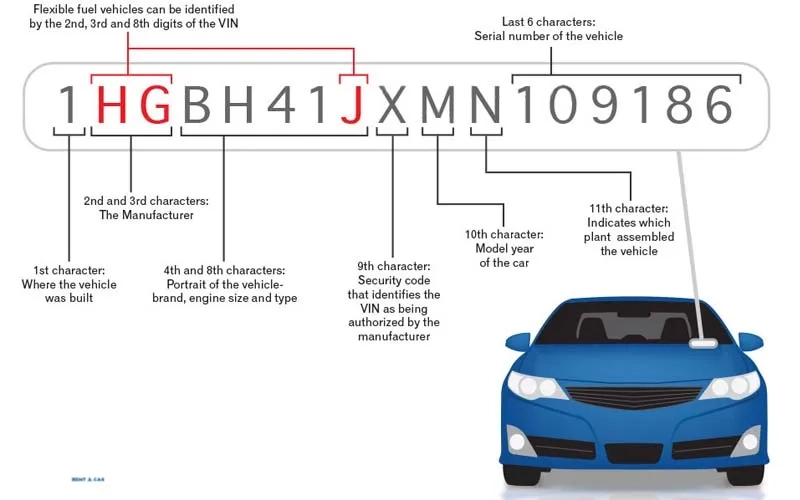Why Some Used Cars in Dubai Have Tampered VIN Numbers
When buying a used car in Dubai, one of the most important things to check is the Vehicle Identification Number (VIN). This unique 17-character code helps identify a vehicle’s make, model, year, and history. However, some used cars in Dubai may have tampered with VINs, which can be a serious red flag.
Why would someone change a VIN? In many cases, it’s done to hide the car’s true history, whether it was stolen, involved in a major accident, or has outstanding loans. Buying a car with a fake or altered VIN can lead to legal troubles, financial losses, and even safety risks.
In this blog, Drive UAE will explore why some used cars in Dubai have tampered with VINs and how to detect them.
Reasons Behind VIN Tampering in Dubai
VIN tampering is a serious issue in Dubai’s used car market. Here are the main reasons why VIN tampering happens:
1. Hiding Stolen Vehicles
One of the biggest reasons for VIN tampering is to sell stolen cars. Criminals change or remove the original VIN to make the vehicle appear legal. Once the VIN is altered, the car is given fake registration papers, making it hard for authorities to track its real owner.
2. Concealing Accident or Damage History
Many vehicles that have been in major accidents or floods may have a bad history. Some of these cars are labeled as “totaled” or “unfit for driving.” To make them look safe for sale, dishonest sellers change the VIN so the damage history is erased from records. Buyers who purchase these vehicles may later face serious safety risks and expensive repairs.
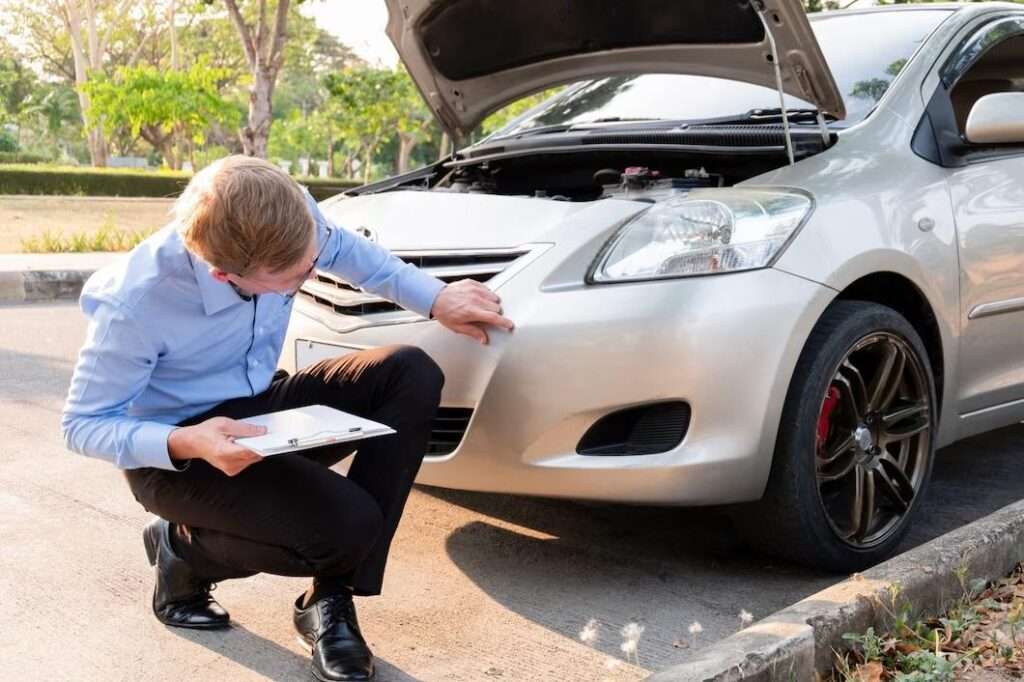
3. Avoiding Outstanding Loans or Financial Issues
Some cars are sold with unpaid loans or liens attached to them. This means the vehicle still legally belongs to a bank or financing company. Fraudulent sellers may change the VIN to hide these financial obligations, tricking buyers into purchasing a car that they do not fully own.
4. Dodging Import Restrictions
Dubai has strict rules on imported cars, including age limits, emissions standards, and safety requirements. Some sellers tamper with VINs to pass off illegal imports as locally approved vehicles. Buyers who unknowingly purchase these cars may face registration issues or even have the car seized by authorities.
5. Increasing Resale Value
Some sellers change the VIN to make a car appear newer or more valuable than it is. This is especially common in luxury and high-performance cars, where even small details like the model year or mileage can significantly impact the price.
How to Detect VIN Tampering
Detecting VIN tampering is crucial when buying a used car in Dubai to avoid potential risks and losses. Here are some simple ways to help you spot tampered VINs before making a purchase:
1. Check the VIN on Multiple Locations
The VIN is not just located in one place on the car. It’s found in several areas, and each should match perfectly. If the VINs are different, that’s a sign of tampering.
- Dashboard: Look at the driver’s side dashboard, visible through the windshield.
- Door Jamb: Check the door frame (the side of the door when it’s open), often near the area where the door latch is.
- Engine Bay: The VIN might also be stamped on the engine block or other metal parts of the engine.
- Chassis: Look for the VIN on the car’s chassis (the base structure of the vehicle).
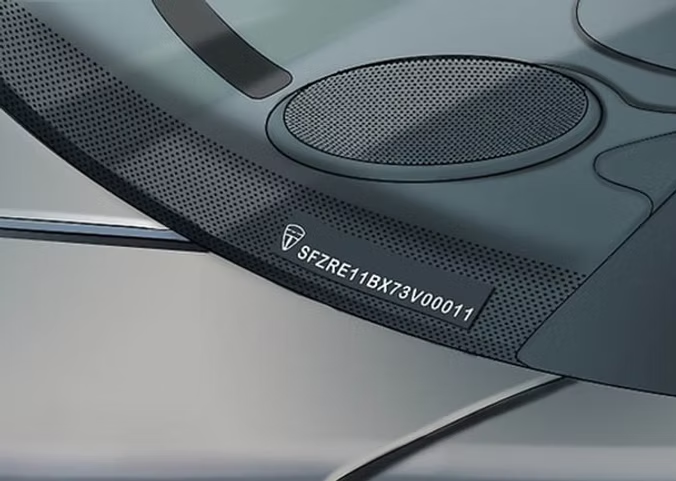
2. Inspect for Signs of Physical Tampering
Look closely at the VIN plate or label for any signs of tampering. If the VIN plate looks unusual or shows signs of being replaced or altered, it could be a red flag.
- Mismatched Rivets: Check if the rivets or screws holding the VIN plate are inconsistent, damaged, or out of place.
- Scratches or Scraping: If the VIN appears scratched, sanded, or scraped off, it’s a clear sign of tampering.
- Irregular Fonts or Fonts That Don’t Match: If the VIN characters look different in font or size compared to other markings on the car, this is suspicious.
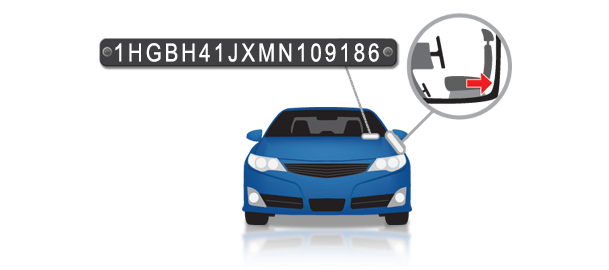
3. Compare the VIN with the Car’s Documents
Make sure the VIN on the car matches the one listed in all official documents. These include:
- Registration Certificate: The VIN on the vehicle registration should match the one you find on the car itself.
- Insurance Papers: Check the VIN on the insurance documents to ensure they match.
- Service Records: Any service or repair history the seller provides should include the correct VIN.
If any of these documents don’t match the VIN on the car, the car could have a tampered VIN.
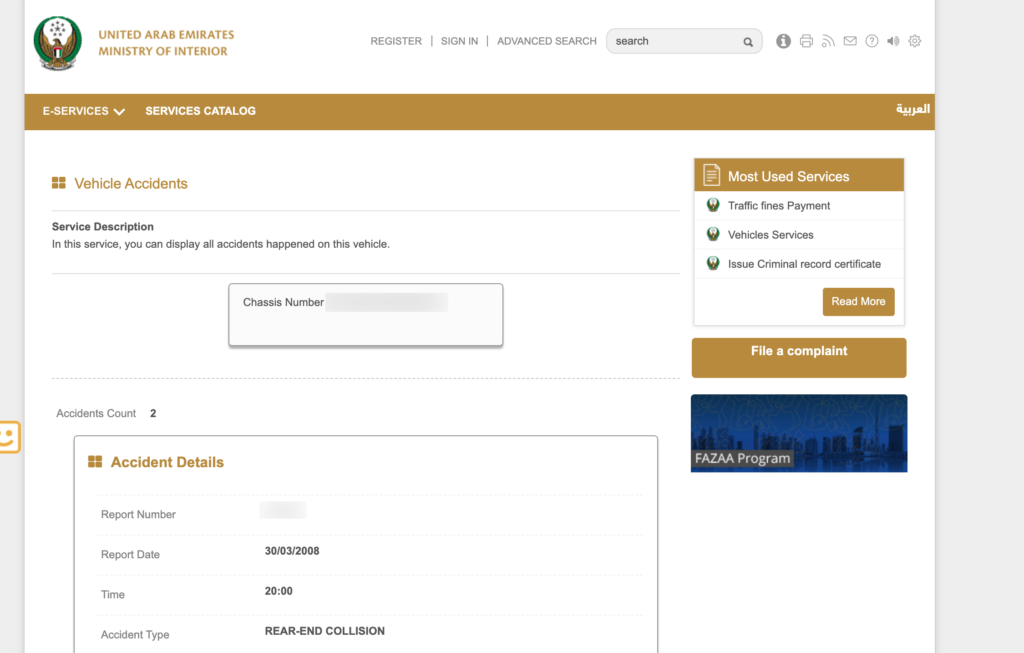
4. Use Online VIN Check Services
You can use websites and services that allow you to enter the VIN and get a vehicle history report. These reports often include important details like:
- Previous ownership
- Accident history
- Stolen vehicle reports
- Recalls
A clean history report means the VIN is likely legitimate. If the report shows any discrepancies or missing information, it may indicate tampering.
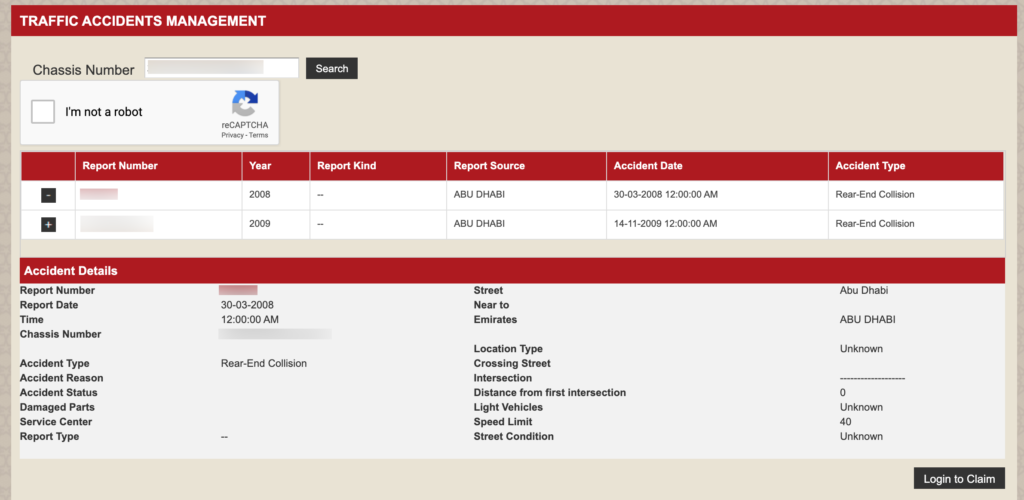
5. Consult Authorities for VIN Verification
If you’re still unsure, you can always contact Dubai’s Roads and Transport Authority (RTA) or local authorities for an official VIN check. They can verify if the VIN matches their records, and they can tell you if the vehicle has been involved in any criminal activities or accidents.
6. Hire a Professional for Inspection
If you’re not confident in checking for VIN tampering yourself, hire a professional mechanic or vehicle inspector. They have the experience and tools to perform a detailed inspection of the vehicle and check for any signs of tampering, including issues with the VIN.
Conclusion
VIN tampering is a serious issue that can lead to legal, financial, and safety risks for used car buyers in Dubai. Whether it’s to hide a stolen vehicle, conceal accident history, or avoid financial obligations, tampering with a VIN is done to deceive buyers.
To protect yourself, always check the VIN in multiple locations, compare it with the vehicle’s documents, and consider using online verification services or professional inspections.

